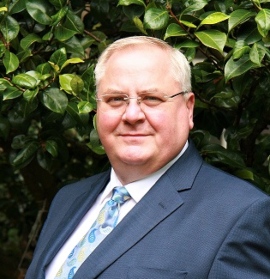Dr Douglas Steinke: The city I now call home
Dr Douglas Steinke, a Senior Lecturer in Pharmacoepidemiology and originally from Winnipeg, Canada, tells us about his research at The University of Manchester and the city that he now calls home.

Students come to The University of Manchester to be taught by the best. For the students that choose to come here, they will be faced with real-world clinical challenges.
Dr Douglas Steinke / Senior Lecturer in Pharmacoepidemiology, The University of Manchester
Why I came to Manchester
After completing my PhD at the University of Dundee in Scotland, I worked for the National Health Service (NHS Scotland) as a research pharmacist for a number of years. I then accepted an academic position in the US which took me back across the pond. However, I really missed being in the UK and looked for opportunities to return, which is when I started seeking work here.
The reputation of Manchester’s Division of Pharmacy and Optometry was well known in North America, and so when I saw a role advertised within that department, I applied to the University. That was 2011; I have never looked back.
My work at Manchester
I currently teach pharmacy students in the Master of Pharmacy programme and I supervise postgraduate students. As Division Senior Tutor, I have an active role in looking after the PhD students in the Division, making sure they have everything they need to succeed.
My research is best described as medicines epidemiology. I look at the way people take their medicines, which medicines are best for patients with certain conditions, and issues of patient and medication safety. I research in the area of chronic diseases such as type 2 diabetes, asthma and cardiovascular disease.
My pharmacy health services research evaluates new services in the NHS that are pharmacist-led or involve a pharmacist in the multidisciplinary team. These include pharmacist-led anticoagulation clinics or diabetes management clinics; educating patients about their condition and improving adherence to medication. Patient safety is paramount. As my work helps people manage their long-term health conditions and can, in some circumstances, prolong a person’s life, it makes it all the more worthwhile.
Being passionate about medicines, my research involves their use in large populations. For a drug to enter the market, a randomised control trial has to be submitted to prove effectiveness. These are performed on constrained populations, usually not including the elderly or young adults. However, when the medication is released to the NHS, anyone may be prescribed them. I want to find out what is happening in these unstudied populations.
When I saw a role advertised within Manchester’s Division of Pharmacy and Optometry, I applied to the University. That was 2011; I have never looked back.
Dr Douglas Steinke / Senior Lecturer in Pharmacoepidemiology, The University of Manchester
International connections
I am a staff member of the Drug Utilisation and Pharmacy Practice group in the Division of Pharmacy and Optometry and am involved in collaborative research projects with international institutes such as Peking University Third Hospital in China. We are presently focusing on research protocols to evaluate pharmacy practice in China, in primary and secondary care and in medicines evaluations.
I am also heavily involved in research and pharmacy education with schools of pharmacy in Egypt and India.
Making an impact
I feel fortunate to be associated with this University because, fundamentally, it is about teaching students to be better people and providing them with the tools to be the best pharmacist they can be.
Adding research into teaching provides the evidence that pharmacists are providing a high level of service for patients. Research should complement teaching in medicinal chemistry, drug development and formulation, medical microbiology and therapeutics so that students are up to date in the latest developments.
In my opinion, students come to The University of Manchester to be taught by the best. For the students that choose to come here, they will be faced with real-world clinical challenges.
